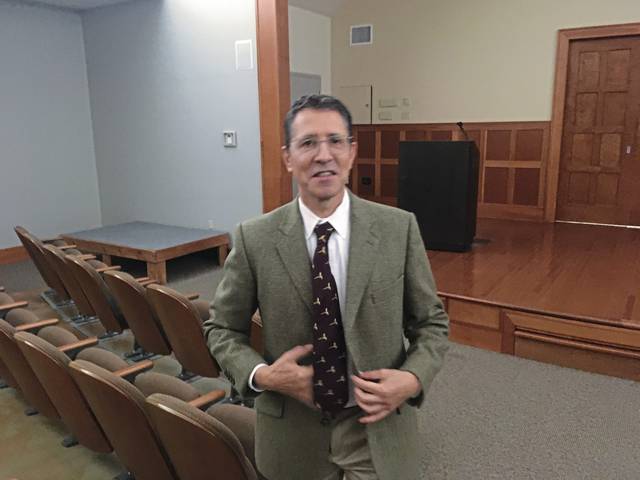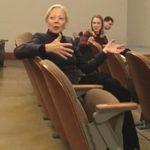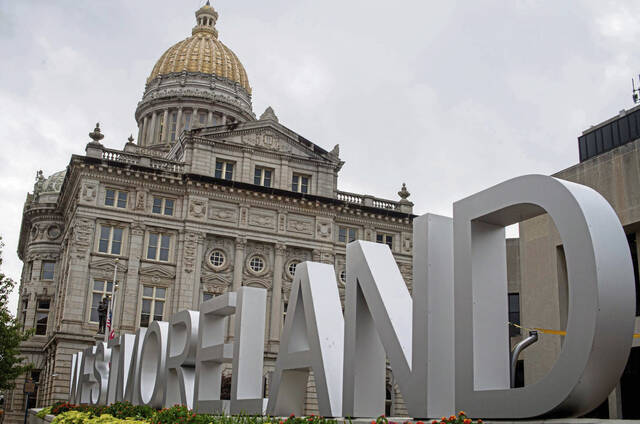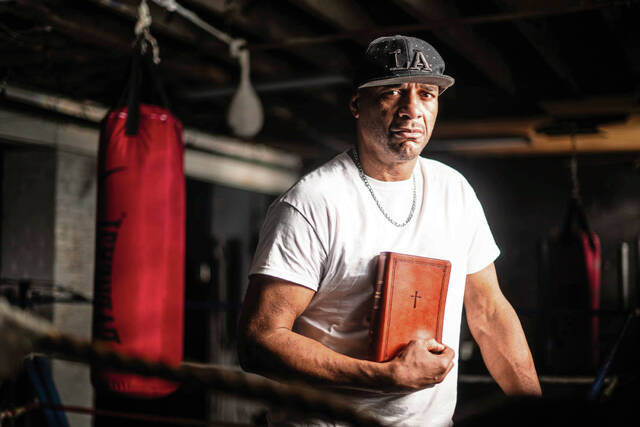With President Trump facing a re-election battle next year in the midst of the ongoing trade war with China, the state of relations between two of the world’s superpowers likely will not get much better in 2020, a panel of experts said Monday.
“They (Chinese) don’t trust President Trump,” Yasheng Huang, professor of international management at the Massachusetts Institute of Technology, said during the hourlong China Town Hall webcast that was aired at 75 sites, including the University of Pittsburgh at Greensburg.
The Chinese view Trump as a businessman seeking a deal, Huang said.
While the Chinese government did not want Democratic candidate Hillary Clinton to win the presidency in 2016 because they viewed her as a hawk on relations with China, it “turns out they got a much worse deal” with Trump, Huang said.
“He (Trump) is reviled” while President Obama was well-liked by the Chinese because they believed he was open if tough, said Michele Heryford, director of the Confucius Institute at the University of Pittsburgh, who was part of the discussion in Greensburg for the event.
Chinese President Xi Jinping, who has become essentially president for life, “has no interest in engaging in what may be a lame-duck president,” said Alan Juffs, director of the English Language Institute at the University of Pittsburgh, who facilitated an hourlong discussion at Pitt Greensburg after the webcast.
But, Juffs believes that relations with China will improve in the election year because the Trump administration “realizes it has to improve the lot of farmers in the Midwest and the trade war is hurting Americans just as much as it might be hurting China.”
The panelists panned Trump’s imposition of tariffs on Chinese goods, which prompted China’s retaliation. The tariff war between the two nations has lasted more than a year, hurting farmers by cutting off Chinese markets and raising the price of steel, both domestic and foreign.
The first phase of any trade agreement with China “will be nothing” and will leave a long way to go, to achieve a real deal, said Stephen Orlins, president of the National Committee on U.S.-China Relations, which sponsored the national webcast.
The costs are are becoming unbearable for American’s agriculture industry, said Melanie Hart, senior fellow and director of China Policy for the Center for American Progress.
There is no indication the United States is going to build a coalition of trading partners to deal with China, said Ely Ratner, executive vice president and director of studies at the Center for a New American Security.
The Trump administrations’s approach to China in its ongoing trade war against China is wrong, said Gary Quinlivan, dean of the Alex G. McKenna School of Business, Economics and Government at Saint Vincent College near Latrobe.
“You don’t put tariffs on inputs (products) that are part of the final product,” made by U.S. companies, said Quinlivan, contacted prior to the town hall. Quinlivan has been to China 51 times during his career.
The Chinese probably believe they will get a better deal from the next president, if Trump loses, Quinlivan said.
“Trump is not looking at the big picture,” Quinlivan said, and should consider promoting free trade.
The Pitt Greensburg campus was the only site to air the discussion in Western Pennsylvania and one of just five sites across the state.
Because the Pitt Greensburg campus hosted a similar China Town Hall event in 2017, the University of Pittsburgh Asian Studies Center reached out to campus officials to host the town hall again, said Susan Isola, a Pitt Greensburg spokeswoman.











